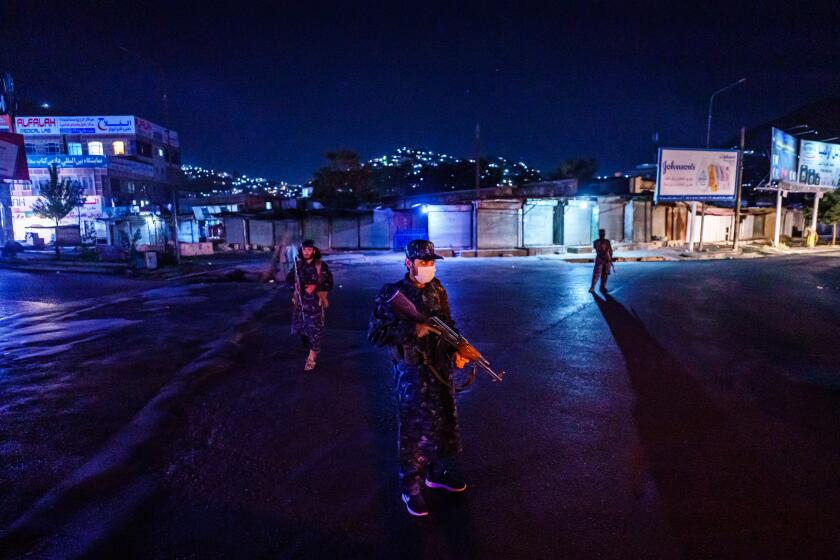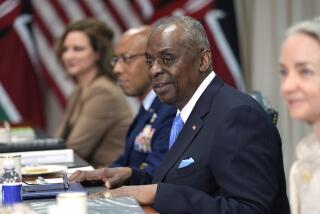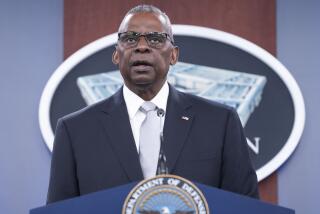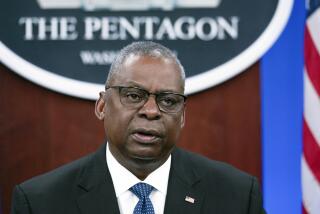Defense Secretary Lloyd Austin says Al Qaeda may seek a comeback in Afghanistan
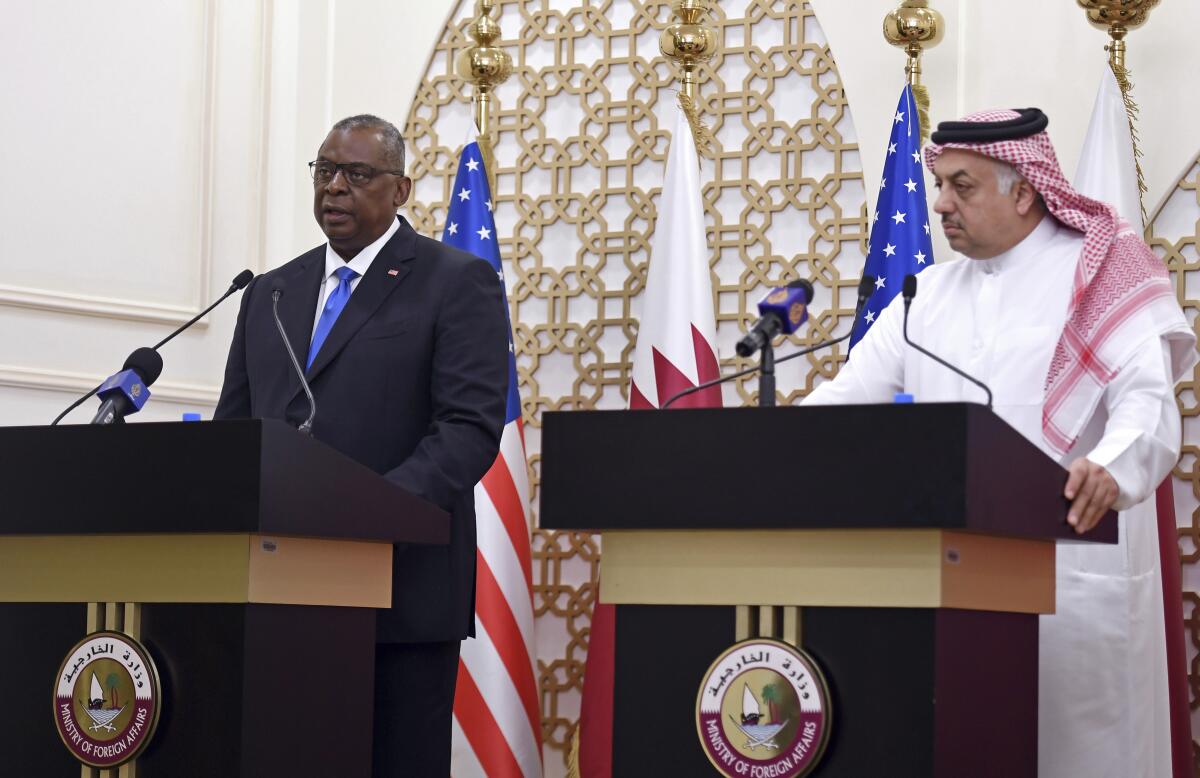
- Share via
KUWAIT CITY — U.S. Defense Secretary Lloyd J. Austin III said Thursday that Al Qaeda, which used Afghanistan as a staging base to attack the U.S. 20 years ago, might attempt to regroup there following the withdrawal of Western forces.
Austin spoke to a small group of reporters in Kuwait City at the conclusion of a four-day tour of Persian Gulf states. He said the United States is prepared to prevent a comeback by Al Qaeda in Afghanistan, which is once again under Taliban rule.
“The whole community is kind of watching to see what happens and whether or not Al Qaeda has the ability to regenerate in Afghanistan,” he said. “The nature of Al Qaeda and [Islamic State] is they will always attempt to find space to grow and regenerate, whether it’s there, whether it’s in Somalia or whether it’s in any other ungoverned space. I think that’s the nature of the organization.”
During its 1996-2001 rule of Afghanistan, the Taliban provided Al Qaeda with sanctuary. The U.S. invaded and overthrew the Taliban after it refused to turn over Al Qaeda leaders following the Sept. 11, 2001, terrorist attacks. During the course of the 20-year U.S. war, Al Qaeda was vastly diminished, but questions have arisen about its future prospects with the Taliban back in Kabul.
“We put the Taliban on notice that we expect them to not allow that to happen,” Austin said, referring to the possibility of Al Qaeda using Afghanistan as a base in the future.
In a February 2020 agreement with the Trump administration, Taliban leaders pledged not to support Al Qaeda or other extremist groups that would threaten the United States. But U.S. officials believe the Taliban maintains ties to Al Qaeda, and many nations, including Gulf Arab states, are concerned that the Taliban’s return to power could open the door to a resurgence of Al Qaeda influence.
About 7,050 men and women in uniform have died in the ‘forever war.’ But the largest percentage, 776 men and women, called the Golden State home.
Austin has asserted that the U.S. military is capable of containing Al Qaeda or any other extremist threat to the U.S. emanating from Afghanistan by using surveillance and strike aircraft based elsewhere, including in the Persian Gulf. He also has acknowledged that it will be more difficult without U.S. troops and intelligence teams based in Afghanistan.
Austin, a retired Army general, has a deep network of contacts in the region based in part on his years commanding U.S. and coalition troops in Iraq and later as head of U.S. Central Command, which oversees U.S. military operations in the Middle East. This week’s trip to the Persian Gulf was his first to the region since he took office in January.
Austin had been scheduled to visit Saudi Arabia on Thursday as the final stop on his gulf tour. But on Wednesday evening, his spokesman, John Kirby, announced that that visit had been dropped because of “scheduling issues.” Kirby offered no further explanation but said Austin looked forward to rescheduling.
Austin indicated that his visit was postponed at the Saudis’ request. “The Saudis have some scheduling issues; I can’t speak to exactly what they were,” he said.
Since taking power, Taliban officials have sprouted in all major Afghan ministries, embedding themselves in the bureaucracy they have inherited.
The Saudi stop was to happen two days before the 20th anniversary of the Sept. 11 attacks, which killed nearly 3,000 people. Fifteen of the men who hijacked commercial airliners and crashed them into the twin towers of the World Trade Center, the Pentagon and a Pennsylvania field were Saudis, as was Osama bin Laden, whose Al Qaeda network plotted the attack from its base in Afghanistan.
Last week, President Biden directed the declassification of certain documents related to the attacks, a gesture to victims’ families who have long sought the records in hopes of implicating the Saudi government. Public documents released in the last two decades, including by the 9/11 Commission, have detailed numerous Saudi entanglements but have not proved government complicity.
The Saudi government denies any culpability. On Wednesday, the Saudi Embassy in Washington released a statement welcoming the move to declassify and release more documents, saying: “No evidence has ever emerged to indicate that the Saudi government or its officials had previous knowledge of the terrorist attack or were in any way involved in its planning or execution.”
More to Read
Sign up for Essential California
The most important California stories and recommendations in your inbox every morning.
You may occasionally receive promotional content from the Los Angeles Times.

